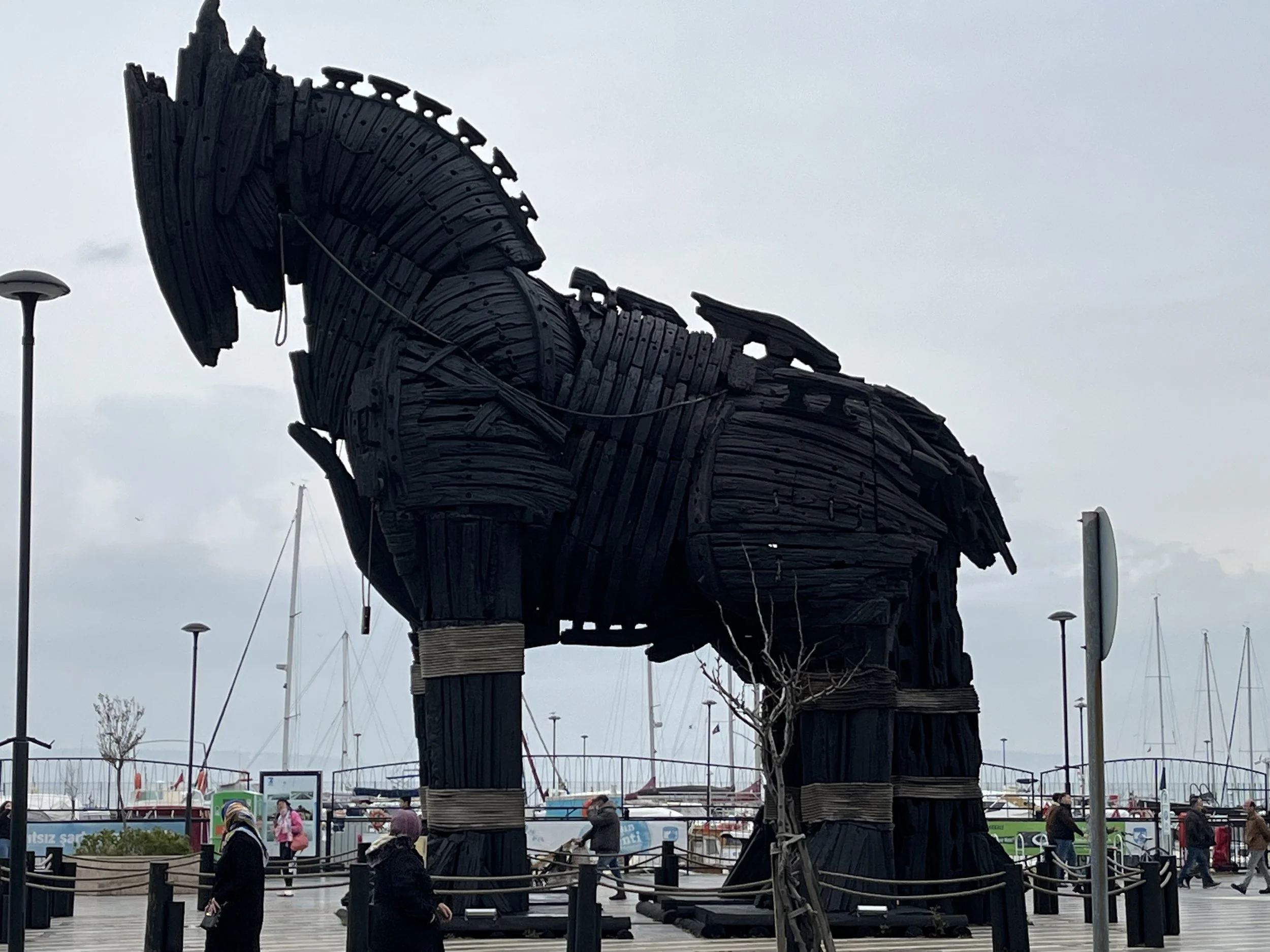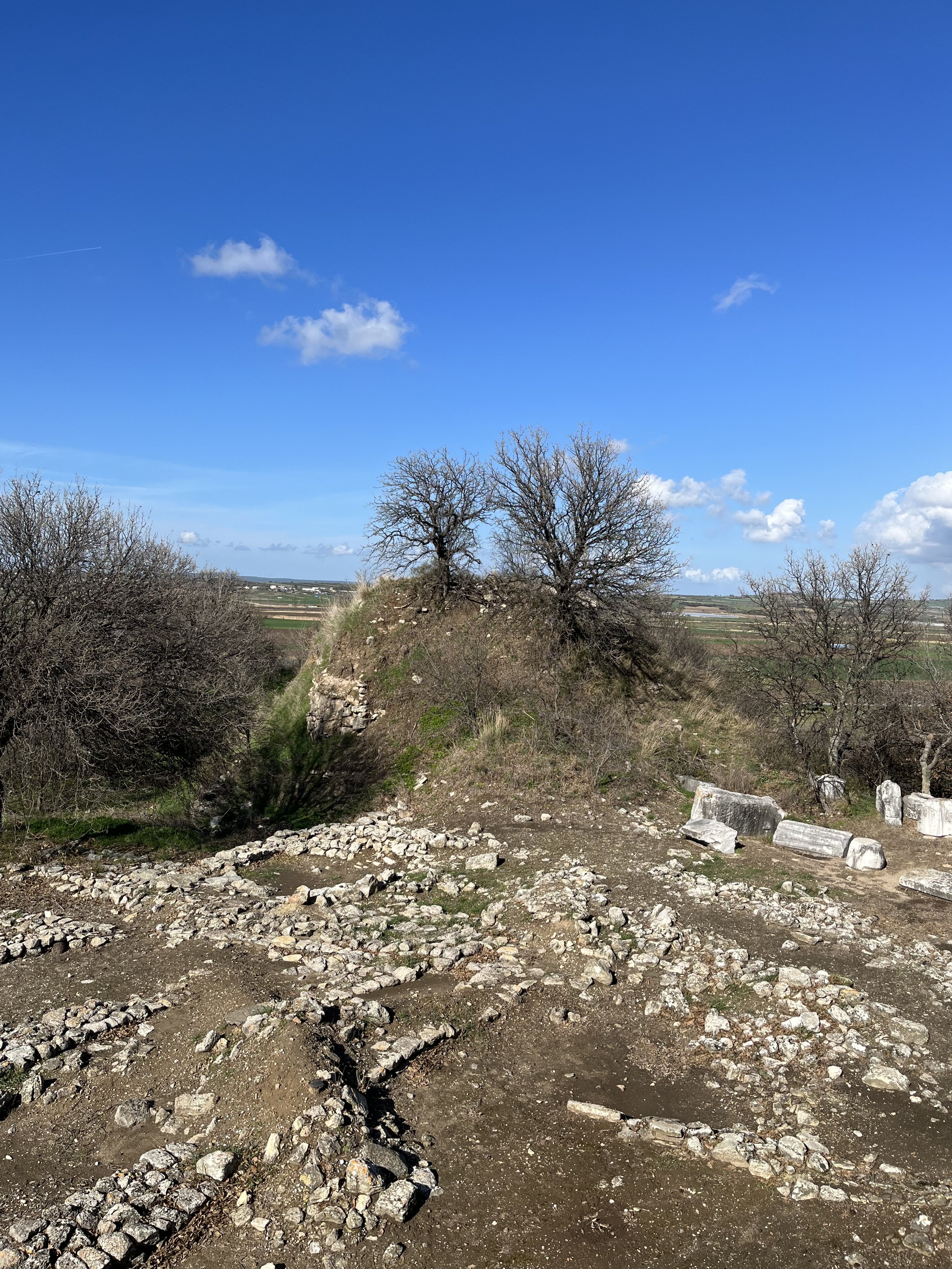The opportunity to return to Turkey and Troy with the U Penn classics seminar “Homer and Troy,” which I’d last been a guest professor on just as the world was shutting down in March 2020, was something I simply couldn’t pass up, even though it meant leaving NY through most of the run of Kissing the Floor. Once again, the course was taught by the brilliant classicist Bridget Murnaghan and archeologist Brian Rose, who ran the dig at Troy for 25 years. The graduate students who came this year were, as before, crazy smart and I learned at least as much as I taught along the way.
In addition to everything else we did in a jam-packed schedule, we staged a reading of my Trojan Women in the remnants of the little ancient theater that’s smack in the middle of the archeological site.
The admirably game students were all cast in the play and each character was played by at least two actors performing the part chorally. I also asked each student to translate his or her part into at least one other language, either Ancient Greek (which they all, of course, know), or what I called their “first” language—a majority of the students grew up in homes where English was not exclusively the language spoken. So, though all of the text was spoken in English, other languages were woven throughout into the aural landscape. Ultimately, we had a total of 12 languages in the air, which felt entirely right. And there’s just nothing like the experience of speaking as characters mourning their fallen city as they stand in the ruins of that very city.
I was struck as before by the redolence and mystery of the site, and by just how much imaginative work archeologists do. We were standing on the ruin of cities which stand on the ruins of other cities, all made and remade over the millennia from the same bones, the white stones that are strung in traces of what were once temple walls, fallen towers and columns, fragments of pediments and lost images of gods, an eloquent confusion only an archeologist like Brian could wander into and show us the sense of.
But spring was arriving once more, the wild flowers coming up through the tumbled stones, and we could hear the harsh bells of the sheep as they picked their sharp-hooved way along what’s left of the walls of the fallen city, following the same path they must have followed all this time that leads down to the greening fields and the smell of the sea.


